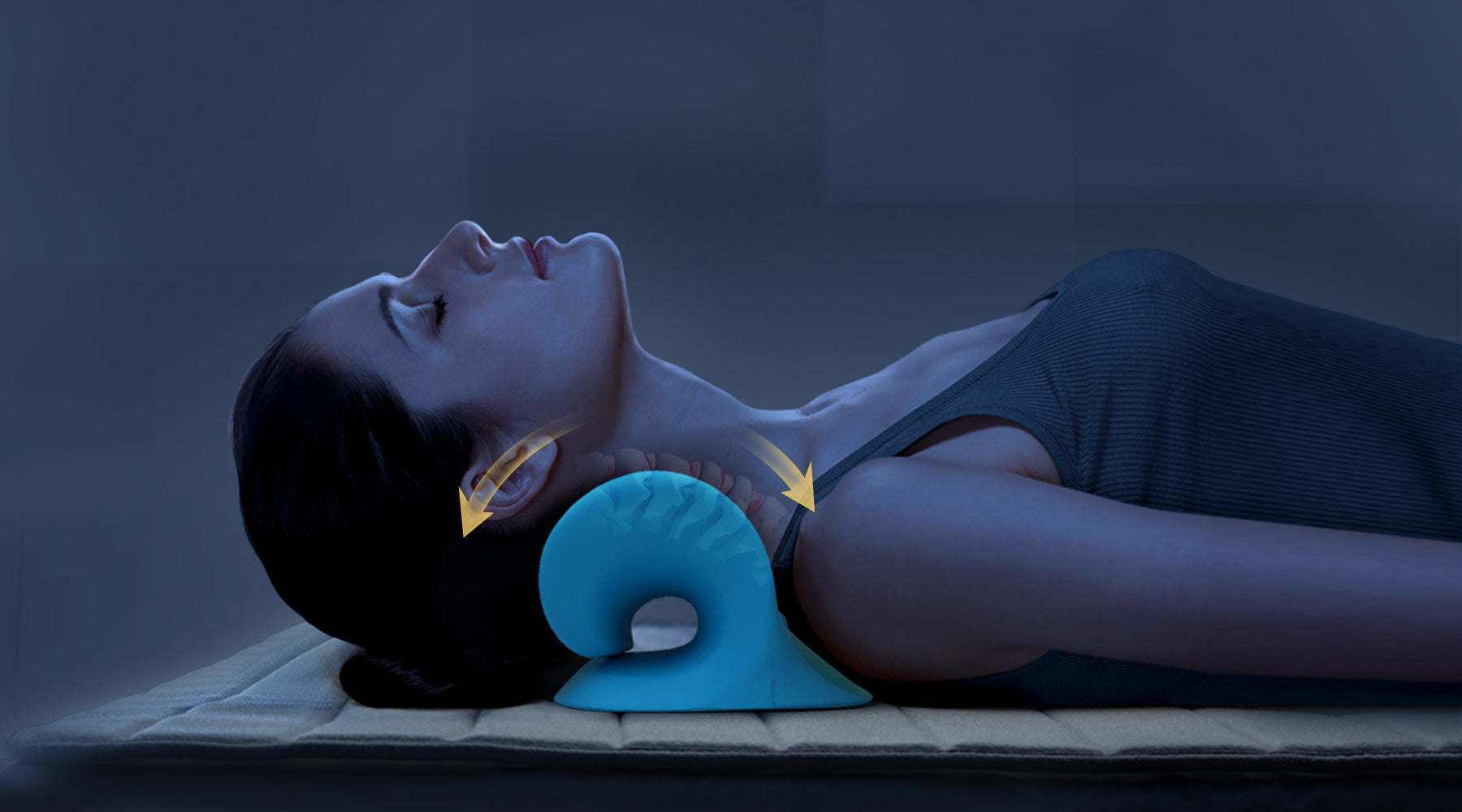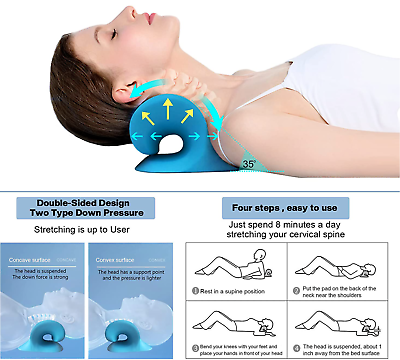Neck Cloud for Cervical Assistance: Kick Back and Relieve Neck Discomfort
Neck Cloud for Cervical Assistance: Kick Back and Relieve Neck Discomfort
Blog Article
The Influence of Anxiety on Neck Discomfort: Techniques for Lowering Tension and Pain
In today's fast-paced globe, it's no key that anxiety has actually become a widespread factor in the beginning and worsening of neck pain. The complex relationship between stress and anxiety and muscle tension commonly leaves people seeking relief from the pain that ensues. By checking out targeted methods aimed at decreasing stress and promoting relaxation, one can begin to attend to the source of neck pain and job in the direction of a more balanced state of health. Join us on a trip to unravel the effect of anxiety on neck discomfort and discover effective methods to alleviate discomfort and improve total quality of life.
Recognizing Stress-Related Neck Pain
Stress-related neck pain can materialize as stress, tightness, or discomfort in the neck and shoulder area. The connection between anxiety and neck discomfort lies in the body's physical reaction to stress, which can result in muscular tissue stress and tightness in the neck muscular tissues.

Identifying Common Tension Locations
Frequently experienced by people under stress, stress locations in the body can offer valuable understandings right into the physical symptoms of emotional stress. One usual tension location is the neck, where tension usually manifests literally. Stress migraines, tight neck muscles, and limited range of movement prevail symptoms of stress-related neck stress. The shoulders are an additional common area where tension gathers. Stress can cause the muscle mass in the shoulders to tighten up, bring about discomfort and pain. Furthermore, the upper back is susceptible to stress accumulation, especially in individuals who experience chronic anxiety. Poor stance and prolonged sitting can intensify tension around. The jaw is likewise a typical area for stress-related stress, as many individuals squeeze their jaw or grind their teeth when emphasized. Understanding these common tension areas can help individuals recognize the physical signs of stress and take steps to address them before they escalate into chronic pain or discomfort.
Applying Relaxation Techniques
Leisure techniques are useful devices for reducing see this neck pain triggered by stress. Additionally, tasks like yoga exercise and tai chi include both physical movement and leisure, making them reliable practices for minimizing stress and anxiety and neck pain. By integrating these leisure techniques into your day-to-day regimen, you can help handle anxiety degrees, reduce stress in the neck, and relieve discomfort associated with stress-induced neck discomfort.
Including Self-Care Practices
Incorporating self-care techniques is important for maintaining overall health and handling stress-related neck discomfort efficiently. Taking part in normal physical activity, such as mild extending exercises or yoga, can help alleviate stress in the neck and shoulders. Practicing excellent posture throughout the day and taking regular breaks from extended sitting or screen time can also prevent strain on the neck muscles.
Furthermore, prioritizing adequate rest and developing a constant sleep routine can contribute significantly to reducing stress degrees and advertising relaxation. Creating a calming going to bed regimen, such as reading a book or taking a cozy bathroom, can help prepare the body and mind for relaxed rest. Furthermore, maintaining a well balanced diet regimen rich in nutrients and staying moistened can sustain overall health and lower swelling that may exacerbate neck discomfort.
Integrating mindfulness practices, such as deep breathing workouts or meditation, can help take care of anxiety and promote leisure. Taking some time for oneself, engaging in leisure activities, and setting limits to secure personal time are additionally important facets of self-care that can add to lowering anxiety and reducing neck discomfort.
Looking For Expert Assistance
Exactly how can individuals effectively attend to persistent neck discomfort that is impacting their day-to-day live and well-being? Seeking specialist assistance can be an essential action in managing and easing neck pain. Consulting with health care specialists such as chiropractic doctors, physiotherapists, or orthopedic specialists can supply valuable insights and tailored therapy plans. These experts can perform extensive analyses to diagnose the underlying reasons for neck discomfort and advise suitable treatments.
Chiropractic doctors focus on spine adjustment strategies to improve alignment and decrease tension in the neck location. Physiotherapists offer targeted exercises and stretches to strengthen muscles, improve flexibility, and enhance overall neck function. Orthopedic specialists can provide advanced medical interventions such as injections or go to these guys surgical options Get More Information for severe cases of neck pain.
Final Thought

Stress-related neck pain can manifest as tension, tightness, or pain in the neck and shoulder location. The link in between anxiety and neck discomfort exists in the body's physical feedback to stress and anxiety, which can result in muscle tension and tightness in the neck muscles. Stress headaches, stiff neck muscles, and restricted array of activity are usual signs and symptoms of stress-related neck stress. By including these leisure methods into your daily regimen, you can aid manage stress degrees, lower stress in the neck, and alleviate discomfort associated with stress-induced neck discomfort.

Report this page